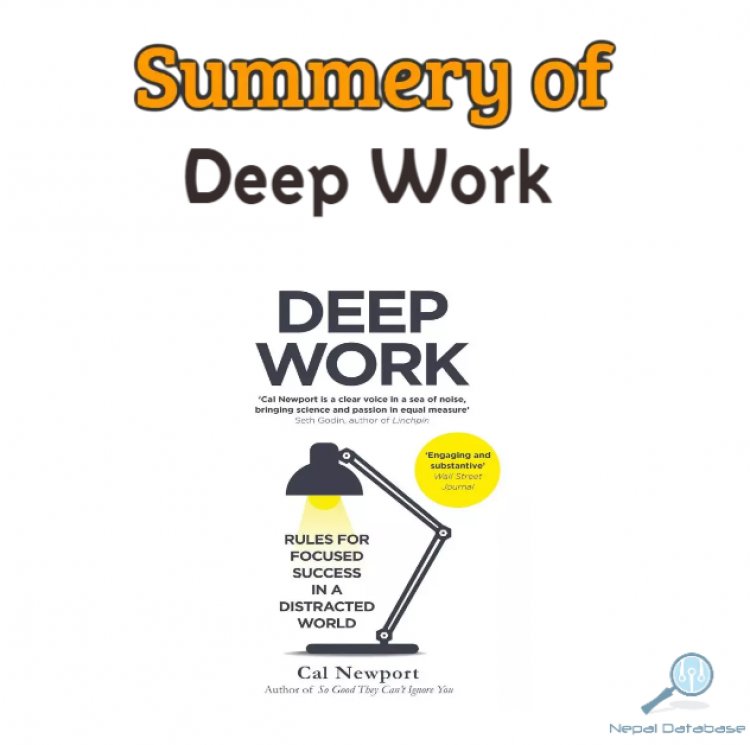Deep Work Book Summary: Strategies for Productivity and Focus
Discover practical strategies for cultivating focus, productivity, and avoiding burnout in Cal Newport's book "Deep Work" summary.

"Deep Work" is a book by Cal Newport that explores the concept of deep work, which he defines as the ability to focus without distraction on a cognitively demanding task. In this book, Newport argues that deep work is becoming increasingly valuable in our knowledge economy and that cultivating deep work habits is essential for those who want to achieve their professional goals.
The book is divided into two parts, with the first part discussing the importance of deep work in today's economy and the negative effects of shallow work. Newport argues that shallow work, which is characterized by interruptions and multitasking, is becoming increasingly prevalent in the modern workplace, and that it is harmful to productivity. He suggests that deep work, on the other hand, produces the most valuable results, and that those who can do it well will have a significant advantage in their careers.
In the second part of the book, Newport provides practical strategies for cultivating deep work. He recommends that individuals set aside dedicated time and space for deep work, minimize distractions, and develop rituals that signal the start and end of deep work sessions. He also emphasizes the importance of rest and recovery, and provides tips for avoiding burnout.
Throughout the book, Newport provides examples of successful individuals, such as author J.K. Rowling and computer scientist Donald Knuth, who have cultivated deep work habits. He also acknowledges the challenges of cultivating deep work in today's environment, such as the constant distraction of technology, and offers tips for how to overcome these challenges.
The themes of "Deep Work" include the value of deep work in a knowledge economy, the importance of cultivating deep work habits, and the challenges of doing so in today's environment. Newport emphasizes the need to develop deep work skills over time and to prioritize rest and recovery to avoid burnout. He also discusses the benefits of deliberate practice, which is the intentional repetition of a task with the goal of improving performance.
One of the central themes of "Deep Work" is the idea that deep work is a skill that can be developed and honed over time. Newport argues that those who can do deep work well will have a significant advantage in their careers, as they will be able to produce high-quality work and solve complex problems. He also emphasizes the importance of focus and concentration in achieving success in today's economy.
Another important theme of the book is the need to minimize distractions in order to cultivate deep work habits. Newport suggests that distractions such as social media and email can be major obstacles to deep work, and that it is important to set aside dedicated time and space for deep work in order to avoid these distractions.
Overall, "Deep Work" offers practical advice for individuals who want to improve their focus and concentration to achieve high-quality work. The book emphasizes the importance of cultivating deep work habits in today's knowledge economy and provides strategies for overcoming the challenges of doing so in a world of constant distraction. By offering insights into the value of deep work and practical tips for how to cultivate this skill, "Deep Work" is a valuable resource for anyone who wants to achieve their professional goals.
What's Your Reaction?




































































































